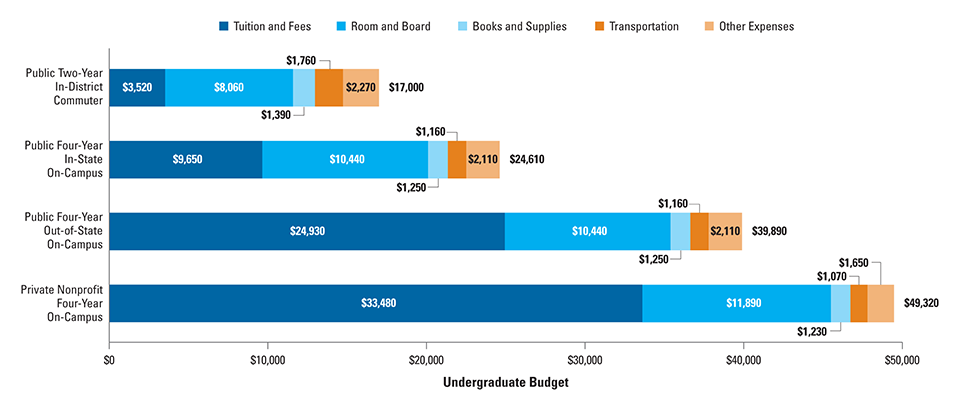
Let me begin by stating that I recognize not everyone has the opportunity to go to college; nor does one necessarily need to attend college in order to be successful. In fact, there are many situations in which I believe it is not even in one?s best interest to enroll in college. However; for the purposes of this post, I am going to be offering advice catered towards those that are currently in college or plan to attend in the foreseeable future.
Also, in the interest of transparency I would like to begin by stating that I personally did attend college and I also double majored as an undergrad. Therefore; one could certainly argue that I come from a biased position, however I will try to keep my reasoning as objective as possible.
I?ve broken down my reasoning behind why I advocate for college students to double major, into 3 distinct points. If by the end of this post I?ve convinced even one college student to pick up another major, I will consider it a win.
The 3 Reasons:
- More bang for your buck
- Stand out in your field
- Discover new opportunities
The 2 Majors Every College Student Should Pursue
Before I dive into the reasons to double major, let me briefly touch upon the 2 majors I think every college student should pursue.
Major 1: A major that you are passionate about.
Major 2: A major that focuses on tangible skills that are difficult to acquire.
Notice that I didn?t list any specific areas of study? I could have easily provided a strong pitch for including Computer Science, Accounting, or Marketing in any double major combination, and it would probably be sound advice for a large percentage of college students. However, I would be remiss to narrow the scope of my advice to just a section of students, even if that section encompassed a majority. I feel that this broader classification is much more applicable.
I think that the mistake most college students make is that they pursue either Major 1 or Major 2, instead of seeking to accomplish both. For instance, I see a lot of students come into college and pick only a passion major, despite knowing deep down that the skills taught within their major are not marketable in and of itself. Much more often, I see the opposite trend where students select only a practical major. The majority of the time students select this type of major out of fear. Fear of not landing a job, fear of disappointing their friends and family, etc.
I made the mistake of only pursuing Major 2 when I first entered college. I began seeking a degree in Engineering because I knew it would make my parents proud and would essentially ensure me a job out of college. However, there was little passion behind what I was doing. While I was certainly learning a lot, I was not happy and I felt that my educational pursuits lacked true meaning. It took me 4 long semesters to finally realize what I needed to do. Although I embraced the path of discovery I took, if someone had sat me down and explained the 3 points I am about to make, it would have spared me a lot of stress.
Reason #1: More Bang for Your Buck
Let?s face it, a college education is becoming increasingly costly. Recent studies show that a 4-year college education will probably cost you somewhere in the range of $96,000 to $200,000 depending on where you attend. If you are going to spend that much money, doesn?t it make sense to squeeze as much knowledge out of your University as possible?
 image credit: College Board
image credit: College Board
I know some of you will be quick to point out that your University charges based on credit hours, so a double major would be more expensive overall. While I would agree that is true, I would encourage you to focus on the marginal cost. Some of your highest costs will be the fixed costs associated with housing, expenses and base tuition. Therefore, the marginal cost per credit hour will actually decrease if you pick up a second major. Not to mention the total benefit you receive from your college education could increase exponentially, as I will try to explain in the next two points.
I also want you to realize that it?s not only your finances that you should be trying to optimize in college, but also your time. An undergraduate education is a 4?6 year commitment to focus on academia. Once you leave this lifestyle, it is extremely difficult to get back into it. If you are even remotely serious about studying a subject, I would highly encourage you to do it during your first go-around, even if it means adding it to another major.
If you are genuinely only interested in one area of study, I would still suggest picking up another major that you aren?t super passionate about.
Use the second major as a tool to force you to learn something you wouldn?t learn in-depth on your own.
I would have never learned so much about software if I hadn?t decided to add on a Computer Science degree. Even though there are more than enough materials available online, I would have only scraped the surface of those materials in my free time. Why? Because it?s too damn easy to quit learning something when there are no stakes involved. Majoring in Computer Science gave me a huge incentive to learn the more involved areas of the field. I can?t tell you how many late nights I had in the lab where learning was no longer enjoyable and the only thing that kept me going was the daunting exams and programs waiting for me at the end of the semester.
Reason #2: Stand out in Your Field

Do you want to feel average? Try attending a major-specific career fair on campus. As you walk around and listen in on conversations, you will begin to feel like your story sounds a lot like the people around you. One way to change this paradigm is to pick up another major. A second major will immediately separate you from the vast majority of people in your field, especially if that second major gives you tangible skills.
I know I said I wasn?t going to single out specific majors, but I want to highlight Computer Science as an example. Every single job in the entire world has tasks that can be automated or enhanced to some degree by software. Think about what this means for a moment. Literally every company out there could benefit from software in some way or another. So if you know how to build or work with software, you can immediately display a value proposition that most people in your field probably can?t. In case you think I?m being dramatic, consider the fact that GE?s CEO is requiring EVERY new employee to learn how to code. Here?s a direct quote from the article for those who don?t want to click the link:
?It doesn?t matter whether you are in sales, finance or operations. You may not end up being a programmer, but you will know how to code. We are also changing the plumbing inside the company to connect everyone and make the culture change possible. This is existential and we?re committed to this.? -Jeff Immelt, CEO of GE
But Computer Science isn?t the only example. Take a skill like marketing for instance. Sales and marketing are crucial to the survival of any business (small or large) on the planet. Let?s say you go to school to study art so that you can one day create and sell art for a living. Eventually, you are going to have to learn how to market and sell your work to other people. Want to know a great way to acquire those skills while still pursuing your passion? Double major in Art and Marketing.
Reason #3: Discover New Opportunities

In our lives, it?s easy for us to start trapping ourselves in boxes. At a young age we are exposed to a wide breadth of topics, and we are encouraged to focus on the subject areas that we are either talented and/or interested in (usually these go hand in hand). While I am an advocate for subject mastery, I think it is dangerous to put on blinders too soon.
For some of you, college will be your first time experiencing true independence; therefore your skills and interests may have been influenced by your adolescent environment more than you think. Allow yourself to become surprised in college. There is no easier way to surprise yourself than to pick up two majors in different fields. In high school, I always pictured myself either working as a lawyer or in something completely business-oriented. Technology wasn?t even on my radar yet. Then I enrolled in Engineering for practical reasons, and in my first 2 years I discovered a passion for building things that people could use. Luckily I discovered this passion before I switched majors, otherwise it would have been easy for me to write off technical degrees all-together and focused solely on economics.
This last part is for you entrepreneurial-minded college students. People always ask me what are new problems that no one else is solving?
In my opinion the greatest concentration of unsolved problems lie at the intersection of subject fields.
Take the company I work at now; Intuit, as an example. Our company makes accounting & financial software. When our founder Scott Cook started the company, he had found a niche that people on either side of the market missed. By no means was Scott the most informed in regards to accounting and finance, nor did he possess deep technical skills that other people in the industry didn?t have. What he did have was a unique blend of technical and financial knowledge that not many people possessed. So when his wife started complaining at their kitchen table about how difficult it was to manage the bills, Scott was able to formulate a concept for a company that others weren?t. Today that company pulls in over $4.7 billion in revenue annually, and employees over 7,900 people.
Oh and in case you were wondering, Scott completed two majors in college: Economics and Mathematics.


